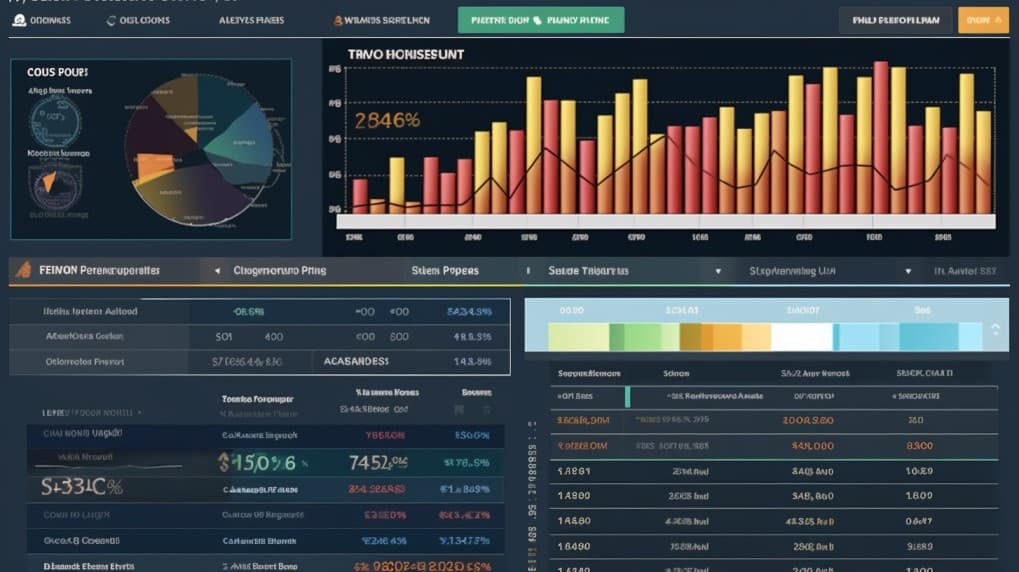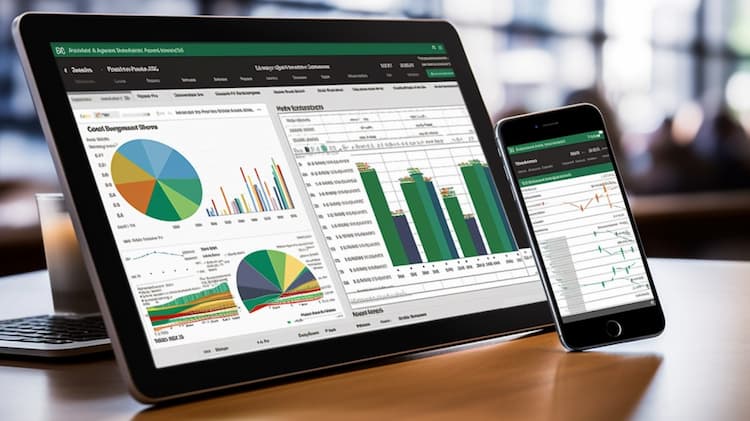
Alternatives to XLE for investing energy sector
Investing in the energy sector can be an attractive option for investors looking to capitalize on opportunities in this industry. The Energy Select Sector SPDR Fund (XLE) is a popular choice for gaining exposure to the energy sector. However, it's important to explore alternatives and diversify your investment portfolio to mitigate risk. In this article, we will discuss potential alternatives to XLE that investors can consider when looking to invest in the energy sector. By exploring these alternatives, you can make a well-informed decision based on your investment goals and risk tolerance.
XLE ETF - Exploring the Energy Sector Investment Options
Investing in the energy sector can be an attractive opportunity for investors looking to diversify their portfolios and potentially benefit from the growth of the industry. The Energy Select Sector SPDR Fund (XLE) is a popular exchange-traded fund (ETF) that provides exposure to energy companies in the S&P 500 Index. However, investors may wonder if there are any alternatives to XLE that offer similar investment opportunities. In this article, we will explore different options available for investing in the energy sector and discuss their advantages and considerations.
Direct Investments in Energy Companies
One alternative to investing in the XLE ETF is to directly invest in individual energy companies. This approach allows investors to have more control over their investment decisions and potentially achieve higher returns if they can select winning stocks. However, investing in individual companies comes with its own set of risks. It requires diligent research and analysis to identify the right companies with strong fundamentals and growth prospects. Additionally, individual stocks can be more volatile compared to ETFs, which may not be suitable for all investors.
When considering direct investments in energy companies, it is important to research the financial health, management team, competitive position, and growth opportunities of each company. Resources like financial statements, company websites, and reputable financial news sources such as Bloomberg and CNBC can provide valuable information for making informed investment decisions.
 XLE overlap Are there any alternatives to XLE for investing in the energy sector?
XLE overlap Are there any alternatives to XLE for investing in the energy sector?
Other Energy Sector ETFs
Apart from XLE, there are several other ETFs that focus on the energy sector. These ETFs may provide different investment strategies or focus on specific segments of the energy industry. One example is the iShares Gold Trust (IAU), which offers exposure to the gold market. Another example is the iShares U.S. Aerospace & Defense ETF (ITA), which focuses on companies involved in the aerospace and defense industries. Additionally, the iShares Core MSCI Emerging Markets ETF (IEMG) provides exposure to emerging markets, including energy companies in those regions.
Investors interested in alternative energy sources, such as renEWAble energy, may consider ETFs like the Invesco Solar ETF (TAN) or the iShares Global Clean Energy ETF (ICLN). These ETFs specifically target companies involved in solar energy and clean energy technologies.
When considering alternative ETFs, it is important to review the fund's investment strategy, holdings, expense ratios, and historical performance. The official websites of the ETF providers, such as iShares and Invesco, can provide detailed information about their products. Additionally, financial websites like Yahoo Finance and ETFdb can provide useful data and analysis for comparing different ETFs.
Disclaimer: please note that the information provided in this article is for educational purposes only and should not be considered as investment advice. It is always recommended to conduct thorough research and consult with a financial advisor or professional before making any investment decisions. The author of this article does not provide any investment advisory services.
While the XLE ETF is a popular choice for investing in the energy sector, there are alternative options available for investors to consider. Direct investments in energy companies allow for more control but come with higher risks. Other energy sector ETFs offer different investment strategies and focus on specific segments of the industry. It is important for investors to research and compare these alternatives before making investment decisions. Remember to always evaluate your risk tolerance and consult with professionals before making any financial decisions.
Source 1: XLE issuer website Source 2: Reuters article about XLE
XLE quote and analysis
Discover the top holdings, correlations, and overlaps of ETFs using our visualization tool.
Our app allows you to build and track your portfolio.
To learn more about the XLE Energy Select Sector SPDR Fund, access our dedicated page now.
FAQ
What is XLE stock?
XLE is not a stock itself, but the ticker symbol for the Energy Select Sector SPDR Fund. It is an exchange-traded fund (ETF) that represents the energy sector and provides investors with exposure to a diversified portfolio of energy-related stocks.
Does XLE stock pay dividends?
Yes, XLE stock pays dividends. As an ETF representing the energy sector, it receives dividend payments from the underlying stocks held in its portfolio, and a portion of those payments is passed on to investors as dividends.
How to buy XLE stock?
To buy XLE stock, you can open an account with a brokerage firm that offers access to ETFs. Once your account is set up, you can purchase shares of XLE through the stock market by placing an order with the stock's ticker symbol.
What stocks are in the XLE?
The XLE ETF holds a diversified portfolio of energy-related stocks. The specific stocks included in XLE can change over time based on the composition of the underlying index and the fund manager's investment strategy. It typically includes companies from various energy sectors, such as oil, gas, refining, and energy equipment and services.
Are there any alternatives to XLE for investing in the energy sector?
Yes, there are alternative ETFs and investment options available for investing in the energy sector. Some examples include other sector-specific energy ETFs, mutual funds that focus on energy companies, or investing in individual energy stocks. It is recommended to compare the features, costs, and performance of different investment options and consider individual investment goals before making a decision.





